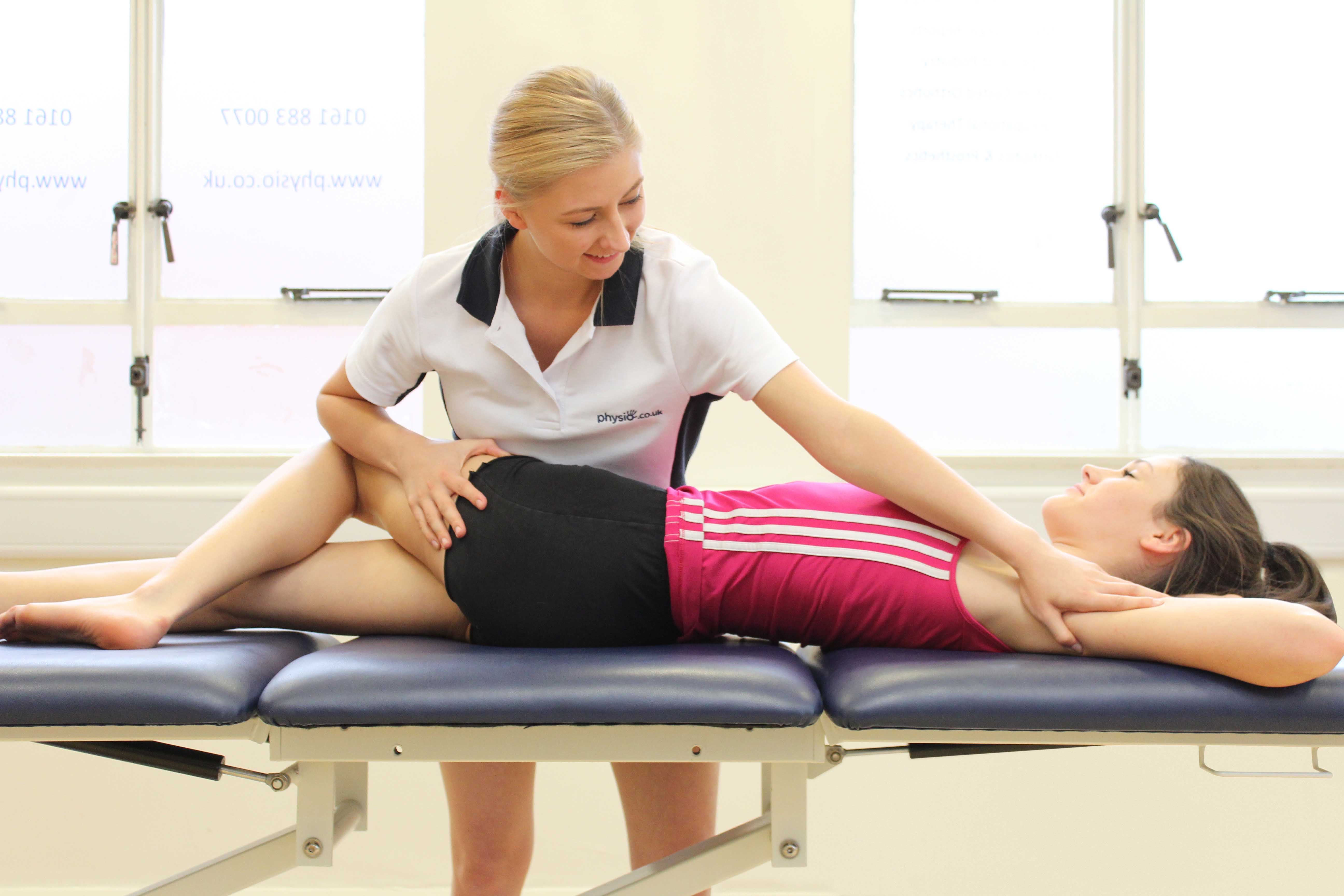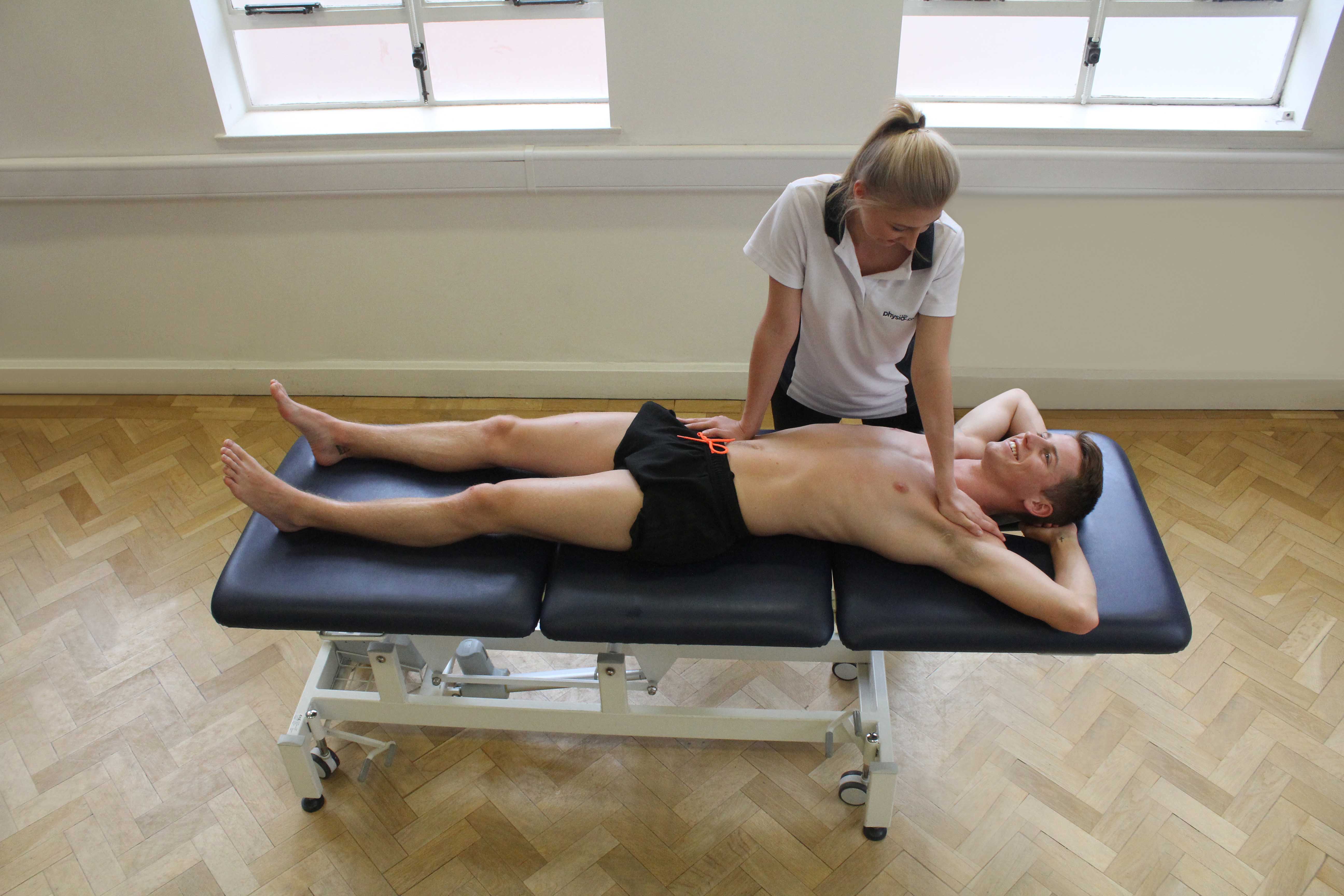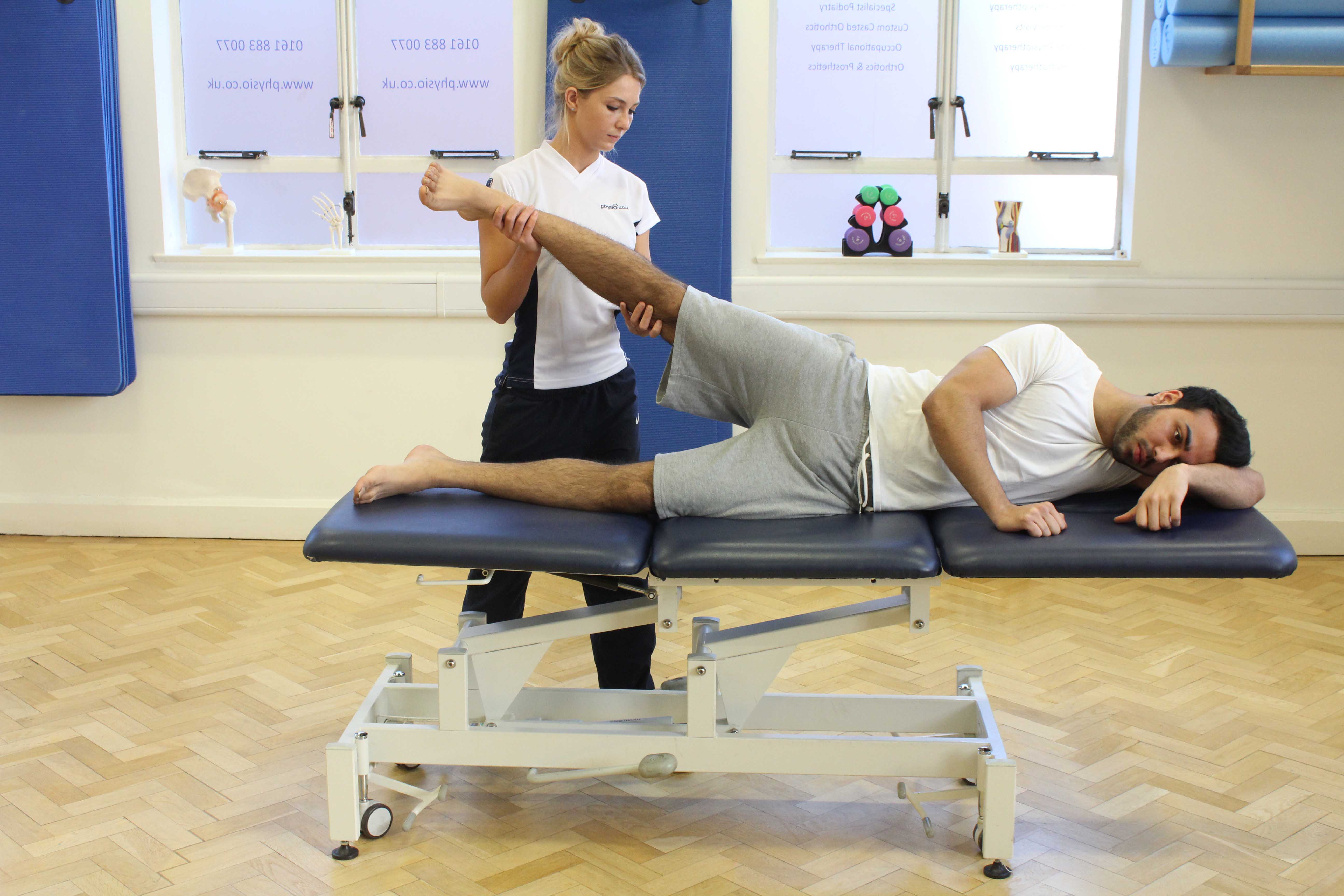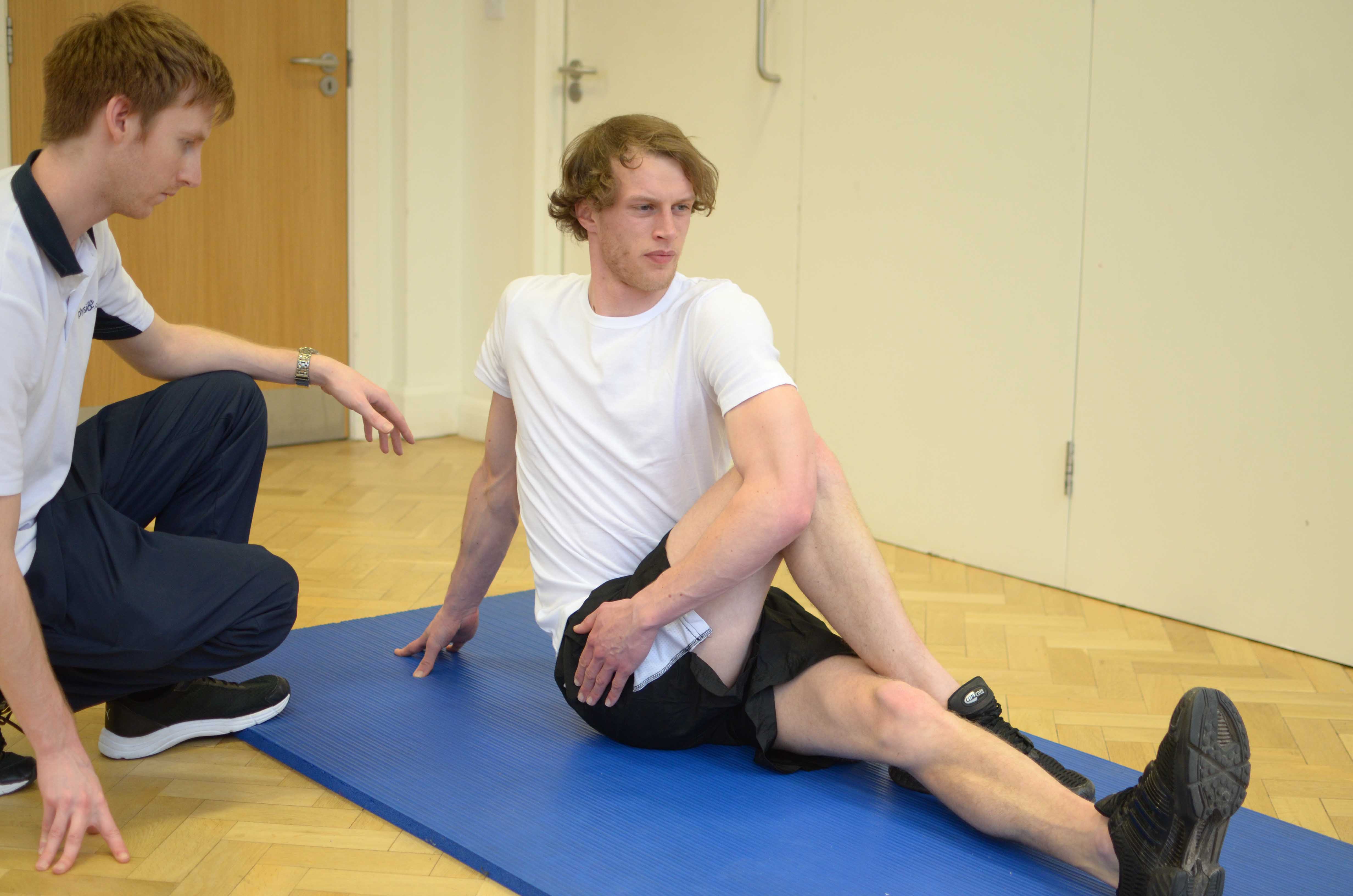What is sacroiliac joint disorder?
The iliac bones and the sacrum make up the two sacroiliac joints which connects the spine to the pelvis. The joints are supported by strong ligaments and because of their weight bearing role, they allow little movement. Sacroiliac joint disorder is pain of the sacroiliac joints that can be caused by many different reasons. Physiotherapy is an effective treatment for sacroiliac joint disorder.
 Above: Passive stretch of the muscles and connective tissues of the hip and pelvis by specialist therapist
Above: Passive stretch of the muscles and connective tissues of the hip and pelvis by specialist therapistHow does sacroiliac joint disorder occur?
Anything that places additional strain on the sacroiliac joints can cause sacroiliac joint disorder. Possible causes may include:
- Osteoarthritis
- Pregnancy
- Lower back problems
- Trauma
- Leg length discrepancies
- Inflammatory conditions such as rheumatoid arthritis, gout and ankylosing arthritis
 Above: Passive stretch of the muscles and connective tissues of the hip and pelvis by specialist therapist
Above: Passive stretch of the muscles and connective tissues of the hip and pelvis by specialist therapistWhat are the symptoms of sacroiliac joint disorder?
The main symptom of sacroiliac joint disorder is pain in this area. You may also experience pain in the lower back and hip areas. If the cause is inflammatory in nature, other symptoms of sacroiliac joint disorder include stiffness and swelling. You may find your walking has been affected, which is another symptom that your physiotherapist will be able to help with. Further symptoms include:
What should I do if I have sacroiliac joint disorder?
It is important to receive a professional diagnosis of sacroiliac joint disorder before treatment options are decided. This may involve various tests including X-rays, CT and MRI scans to determine if any other structures are involved. You will then be able to begin a tailored physiotherapy programme to help you return to your normal activities of daily living.
 Above: Progressive strengthening hip exercises supervised by experienced therapist
Above: Progressive strengthening hip exercises supervised by experienced therapistPhysiotherapy treatment for sacroiliac joint disorder.
Your physiotherapy programme will be tailored to your individual needs and goals. Potential treatment options include strengthening and stretching exercises, gait re-education and postural education to help regain your activity levels. Other physiotherapy options include:
What shouldn’t I do if I have sacroiliac joint disorder?
Do not continue with your normal activities of daily living until you have had an assessment with a physiotherapist. They will be able to let you know of movements and activities that can and cannot be done.
 Above: Progressive strengthening hip exercises supervised by experienced therapist
Above: Progressive strengthening hip exercises supervised by experienced therapistCould there be any long-term effects from sacroiliac joint disorder?
If the cause of your sacroiliac joint disorder is degenerative such as osteoarthritis, unfortunately there is no cure. However, keeping active with physiotherapy can help to prevent your condition from becoming worse and will help you maintain an active lifestyle.
To arrange a physiotherapy appointment call Physio.co.uk on 0330 088 7800 or book online.

 0330 088 7800
0330 088 7800





































